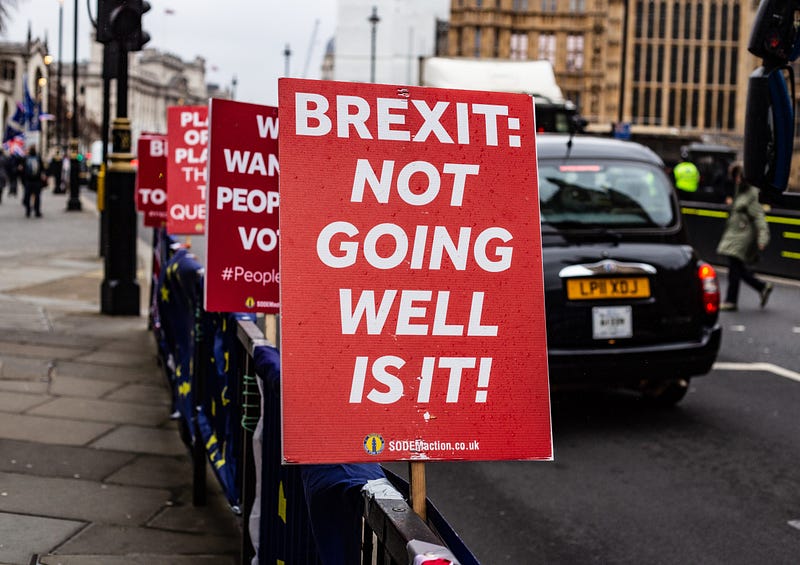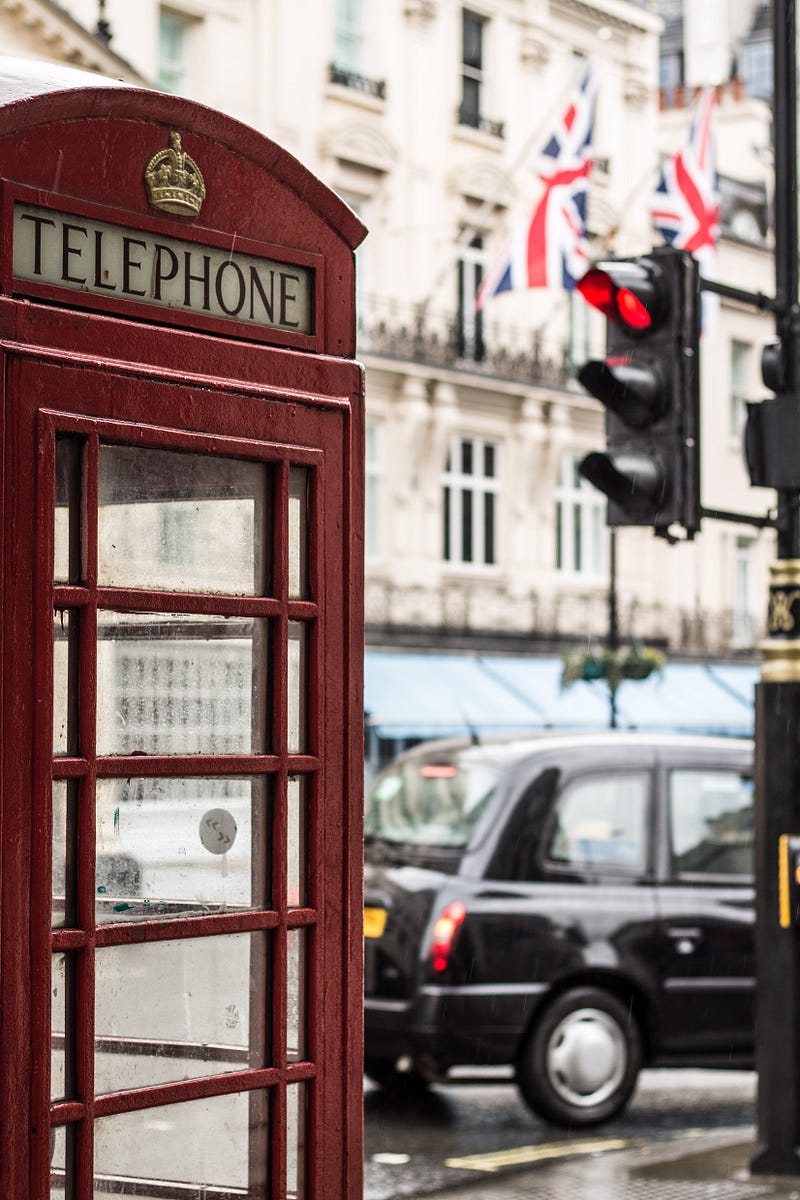Or, what impact does a no-deal Brexit have on America?

Boris Johnson, long a champion of Britain’s exit (Brexit) from the European Union, is now the Prime Minister. Soon he will formally take up residence at 10 Downing Street and begin the onerous task of doing what his predecessor, Theresa May, failed to do, remove Britain from the European Union. If Johnson is to hold true to the promise he made on June 24, to “execute Brexit with or without a deal” by October 31, he’ll have no time to waste.
Without foraging too deeply into the complications of Brexit, there are essentially two ways in which Johnson will have to accomplish this, the “deal” and “no-deal” exit. Some of the Pro-Brexit contingency wishes to have deals in place with the countries outside of the European Bloc before leaving. That’s the “deal” way.
Unfortunately, Britain can’t negotiate any of those contracts or trade deals while they’re still a member of the EU.
So, this strong arms the country into a no-deal position which suits the other side of the Pro-Brexit contingency. This is their preference since it means not having British Parliament approve some form of a deal that would keep the U.K. tethered to the Europen Union in some manner.
As one of the countries that does have a trade deal with Britain, what are the potential impacts of a no-deal Brexit to America? Well, first and foremost, a new trade deal would have to be negotiated.
It’s no secret that trade deals to American President Donald Trump are critical, if not the defining item, to his geopolitical agenda. However, unlike China, America operates a trade surplus with Britain. The country is America’s fourth-largest export market, the Office of the U.S. Trade Representative reported that exports to Britain were $141 billion and imports were $121 billion, resulting in a $20 billion surplus in 2018.
Using the vernacular that only he can, President Trump offered Britain a “phenomenal” trade deal post-Brexit. Global suspicion of what this actually means is deep. The relationship between the two countries is already seen as “unique” by many and it would mean ratcheting that up to be “very unique”. Whether this would be a mutually beneficial trade deal was made dubious when President Trump acknowledged on his most recent trip to Britain that “everything is on the table”.
Since “everything is on the table”, this includes the holy grail of trade for America. Access to Britain’s agriculture and their coveted universal health care system, the National Health Service (NHS). According to Capital Economics Andrew Hunter, he believes that agriculture and the NHS are “non-starters” for Britain and the Trump administration’s apparent insistence on access to those markets diminishes the possibility that a new trade deal would be approved with the Trump administration.
However, both Boris Johnson and Donald Trump are very strong allies, so saying anything authoritatively right now is arguable.
Hunter also points out that ultimately, America has very little to gain — or lose — from a messy Brexit or trade deal. The U.S. exports only account for .7% of America’s GDP. There is an acknowledgement that Britain will be forced to develop a closer trade relationship with America but any trade deal, at least according to Hunter, could only “have the potential to provide a modest boost to both economies.”
One thing that Brexit appears to be is a vote against globalization. Through that lens, it removes Britain from the main stage of the financial world. Since both London and New York City are global financial epicenters, it could be said that London’s loss may be New York City’s gain.
But all that glitters is not gold. The day after the Brexit vote, currency markets responded negatively. The Dow Jones industrial average dropped about 6%, but then recovered. While this did have a positive effect on the value of the American dollar, in so doing it made American shares more expensive to foreign investors.
Also, it can’t be ignored that U.S. businesses are the biggest investors in Britain. With that said, Brexit diminishes growth for companies that operate in Europe. These companies have invested hundreds of billions of dollars and employ about one million people. The companies also use Britain as the gateway to trade with 28 nations. Closing that down could have an impact on those American companies that do have a European supply chain, like car companies.
For those not involved in trade deals or financial markets, what does it mean for the average American who wants to travel to Britain or the EU? Well, it’s as complicated as Brexit itself. Thanks to the 2018 “open skies” accord between the two countries, airlines “guarantee the continuation of the vital transatlantic routes used by tens of millions of passengers a year.” Which is great if you’re only flying from the U.S. to the U.K. If you have a connecting flight to Estonia, it gets a little messier.
Currently, airlines have partnerships to help carry their customers to places they don’t have routes to. For example, an American flight from New York City to Estonia may have a connection in London because American doesn’t fly to Talinn, Estonia and partners with a carrier that does. A no-deal Brexit leaves in doubt how those partnerships would continue to function.
In addition to increased fares, it’s quite possible that these connecting partners could post times they simply won’t be able to meet, potentially leaving travelers stranded for hours or days.
Air travel these days means a certain amount of chaos when going through security lines. Don’t expect security to get any better or faster, count on it to get worse and longer.
The Brexit referendum caused the British Pound to fall from a 2014 high of $1.70 USD. Products will probably remain cheaper in a post-Brexit Britain, but that won’t include hotels in the U.K. Cheaper vacations have already begun pushing demand, and thus the rates, up.
Additionally, the hospitality industry relies heavily on EU labor. Many hospitality workers in Britain don’t have a visa. And much like elsewhere around the world, these visa-free workers tend to work for less than the countries citizens.
Brexit will end the freedom of movement between Britain and other EU countries and require all EU citizens to get a sponsorship to work in the U.K. It’s estimated that this would impact about 300,000 jobs if a no-deal Brexit moved forward. This may force the hospitality industry to raise wages in order to find staff. It’s safe to say that those costs will be passed on to their guests.

At the very least it can be said that a no-deal Brexit leaves a large amount of uncertainty as to how it could impact Britain and America.
This uncertainty arises from the fact that a no-deal Brexit is uncharted economic territory.
It’s up to freshly minted British Prime Minister Boris Johnson to try and assuage America, his own country, the EU and the world that Brexit will only end up being as messy as his coif . . . and not the cataclysmic event that many are anticipating.



